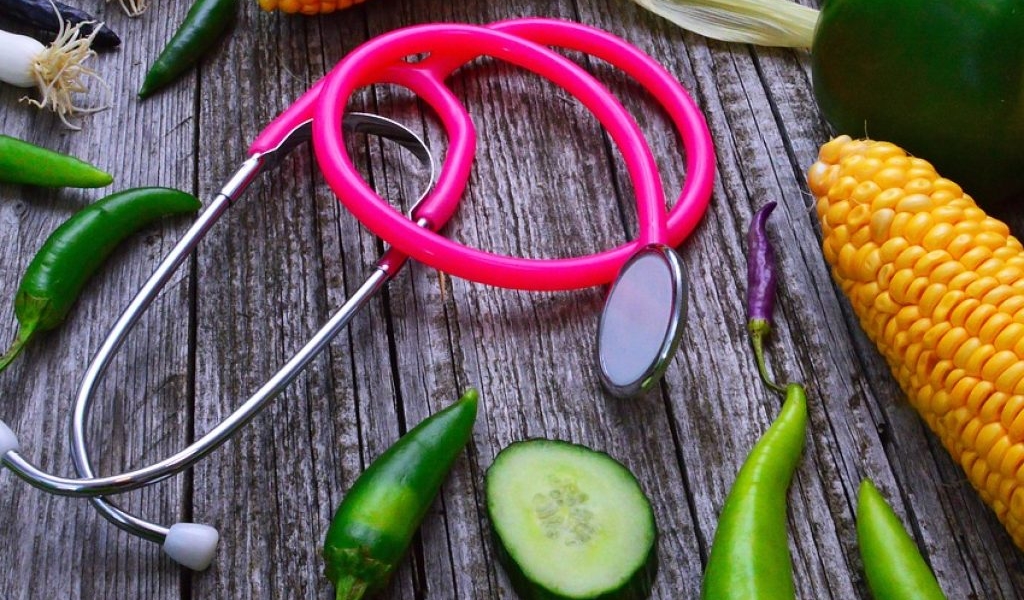
I have discovered an understanding of obesity from my own experience that is different from that of those who define obesity as a Body Mass Index (BMI) above 30.0. I do agree that obesity is a disease, but I do not believe that it is purely a physical measurement. Rather, I think one’s BMI is an indicator of the presence of the disease of obesity.
I believe that no matter how much I weigh and no matter what my BMI, I will be obese till the day I die. Here’s why— It seems to me that obesity is not measured in a moment in time, but rather it is a lifelong metabolic condition. I will always have a tendency to gain weight. Therefore, I cannot afford to live a lifestyle typical of our culture. For me that will result in rapid weight gain accompanied by increased risk of diabetes and heart disease, among other challenging physical conditions and side effects.
When I was growing up in the 50s and 60s, considerations such as whether or not your food was organic or non-GMO didn’t exist. We didn’t have gym memberships either, and Jack LaLanne was just starting what would grow into the fitness industry. The diet industry was simply the idea of weight loss by restricting your calories or taking Metrecal or diet pills. The only real consciousness of eating a balanced diet had to do with the food group pyramid and being urged to “eat your vegetables.” I remember what a treat it was to go out to a particular restaurant I loved where I would have a grilled Taylor pork roll sandwich on a hard roll with cheddar cheese and onion rings, followed by pie ala mode.
At age 71, for the first time in my life, I am maintaining a weight loss. However, getting here has been a painful journey mentally, emotionally, and physically. I was always prone to gaining weight and have gained and lost over 100 pounds four times in my life. I’ve tried every kind of diet and exercised terrific discipline during my weight losses, but like 95% of dieters, I was never able to sustain the loss. This was not only physically and emotionally discouraging, but, I also experienced a tremendous amount of shame and humiliation as well. I thought this was all my fault until I landed in an endocrinologist’s office about four years ago. After waiting many months for the appointment, he measured my resting metabolism and found it to be about 1,000 to 1,2000 calories per day. (An average woman needs to eat about 2,000 calories per day to maintain her weight, and 1,500 calories to lose one pound of weight per week,) The doctor assured me that, indeed, it wasn’t my fault that I couldn’t sustain a weight loss. It was because my body could only process this low level of calories and that it would take an extraordinary amount of self-restraint to limit my caloric intake to this degree, day after day for the rest of my life. However, failure to do so would naturally lead to gaining weight. He looked at me with great sadness in his eyes and offered me no hope. He simply wished me good luck.
I went into a deep depression and resigned myself to being fat for the rest of my life. My only hope or sense of control over the situation was the rate at which I would gain weight.
About two years later, I ran into a friend who was also chronically overweight. She had lost over 100 pounds since I last saw her. Not only was she physically beautiful, but she looked so relieved and relaxed in her new body.
We arranged to get together shortly thereafter, and she explained that she’d had gastric sleeve surgery and was involved in a bariatric support program at our local hospital. It was the first time I had experienced any hope about my weight since seeing the endocrinologist. I made an appointment, learned all about the various kinds of bariatric surgeries and their respective rates of success and failure, and what it would take for me to qualify for the gastric sleeve surgery.
I assure you that anyone who thinks bariatric surgery is an easy way out is speaking from ignorance of what is involved. It is a daunting process of attending support groups and education classes about the various stages of dietary change required before and after surgery, as well as a series of doctor’s appointments with your bariatric surgeon, GP, cardiologist, pulmonologist, and a psychologist. For the many patients who fail their sleep study, a diagnosis of sleep apnea delays their surgery date by several months. An endoscopy is also required weeks before surgery. In coordination with insurance company requirements, all patients have to lose a designated amount of weight to qualify for a surgery date. For several weeks before and after surgery, patients are limited to a high protein liquid diet.
The good news is that after all that, I discovered that, if I follow the rules, I can have long-term success. I was also able to eliminate four of the seven medications I was on. The surgery itself was not the solution. Rather, it was one of several key ingredients combined that made up my recipe for success. In addition to the surgery, I have discovered that my long-term success requires that I keep the following four areas of my life in balance:

- Diet: My surgery has created a natural limitation to the quantity of food I can eat each day and my palate has changed. Many of the foods that I used to love don’t appeal to me now. I also noticed that if I want to eat cake, for example, I can thoroughly enjoy three bites. I don’t have to eat an entire slice. I maintain a high protein diet, take a prescribed regimen of vitamins, drink at least 64 oz of water daily, and chew each bite of food at least 32 times to release sufficient gastric juices for digestion.
- Exercise: I have a 2-hour routine at the gym which I do 3x/week. I make that non-negotiable. In other words, I am undeterred by even the best excuses I can come up with. Any exercise I do beyond that is optional.
- Mental and Emotional Balance: I was always prone to stress and distress eating. So, it is critically important that I not allow mental and emotional challenges to escalate. I pay close attention to how I feel inside and to my inner dialogue. When I go negative, I nip it in the bud. I’ve developed lots of strategies and techniques to stay present in the moment and attend to whatever needs my attention.
- Sleep/Stress Management: When I was heavy, I tried all sorts of sleep aids. Now I don’t need them. I make sure to get at least 7 hours of sleep each night. I also have chosen to give the highest priority to maintaining a state of inner peace. I pay attention to when I feel rushed or impatient and renegotiate my expectations to reestablish balance. Nothing is worth throwing myself out of balance. I know that stress can be the lead domino in a cascade of negative health and body weight repercussions for me, so I avoid it like the plague.
So far, so good. I had my surgery over 15 months ago and have lost 112 pounds. For at least five months now, I have maintained exactly the same weight and feel confident in my ability to sustain this success.
For further insight into my journey, and to learn more about mastering the art of being you, read more here. If you’re feeling social, I also provide daily wisdom and tidbits on my Instagram account. Give me a follow so we can thrive together!







